Cosmology
-
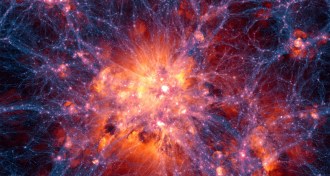 Cosmology
CosmologyUniverse re-created in computer simulation
The Illustris Project traces the detailed evolution of the universe starting from 12 million years after the Big Bang.
-
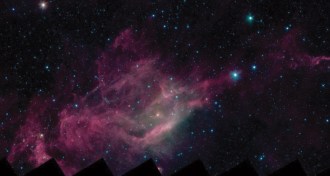 Cosmology
CosmologySee the sky in a different light
An interactive map lets you explore the galaxy with infrared light.
-

-
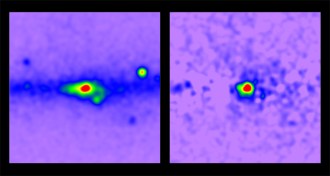 Cosmology
CosmologyGalaxy’s gamma-ray glow may expose dark matter
An excess of gamma rays at the center of the Milky Way could be a signature of dark matter.
By Andrew Grant -
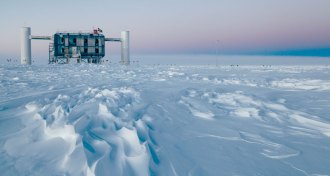 Astronomy
AstronomyNeutrinos from space rain down from all directions
Using Earth as a filter, scientists detect thousands of neutrinos from beyond the solar system.
By Andrew Grant -
 Cosmology
CosmologySpeed of early universe’s expansion determined
The rate known as the Hubble constant is measured with great precision for the universe of 11 billion years ago.
By Andrew Grant -
 Cosmology
CosmologyMaybe time’s arrow needs ergodicity as well as entropy
Explaining the arrow of time might require an equilibrium universe with hidden ergodic dynamics.
-
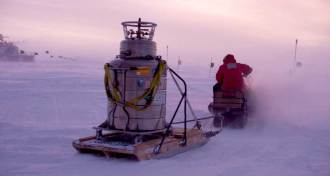 Astronomy
AstronomyThis winter warrior made the gravitational waves discovery possible
Engineer Steffen Richter played an important role in the recent gravitational waves discovery, wintering at the Amundsen-Scott research station at the South Pole and making daily treks to keep the BICEP2 telescope running.
By Andrew Grant -
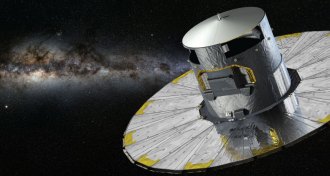 Cosmology
CosmologyCosmic question mark
Two ways of measuring the universe’s expansion rate disagree by about 10 percent. One of the methods may be flawed. Or it could be that a hitherto unobserved phenomenon is at work.
-
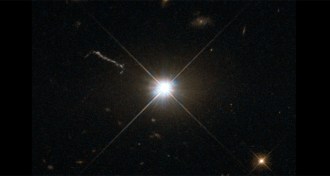 Cosmology
CosmologyTop 10 cosmological discoveries
The cosmic microwave background radiation has played a part in many of cosmology’s greatest discoveries.
-
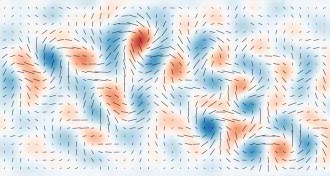 Cosmology
CosmologyGravitational waves unmask universe just after Big Bang
For the first time, researchers have seen traces of superfast cosmic expansion and gravity waves.
-
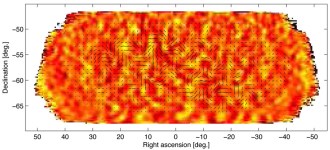 Cosmology
CosmologyInflation rides gravity waves into cosmological history
The discovery of gravity waves in the cosmic microwave radiation signals the success of inflationary cosmology.